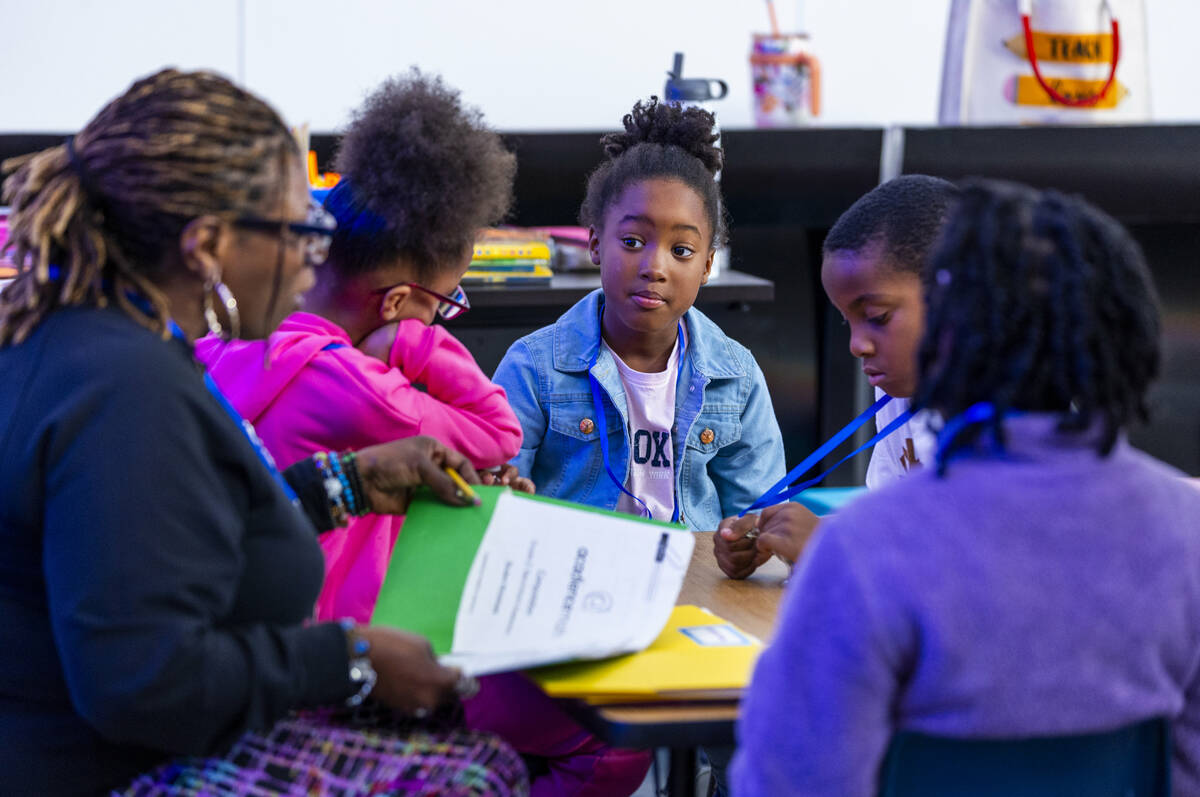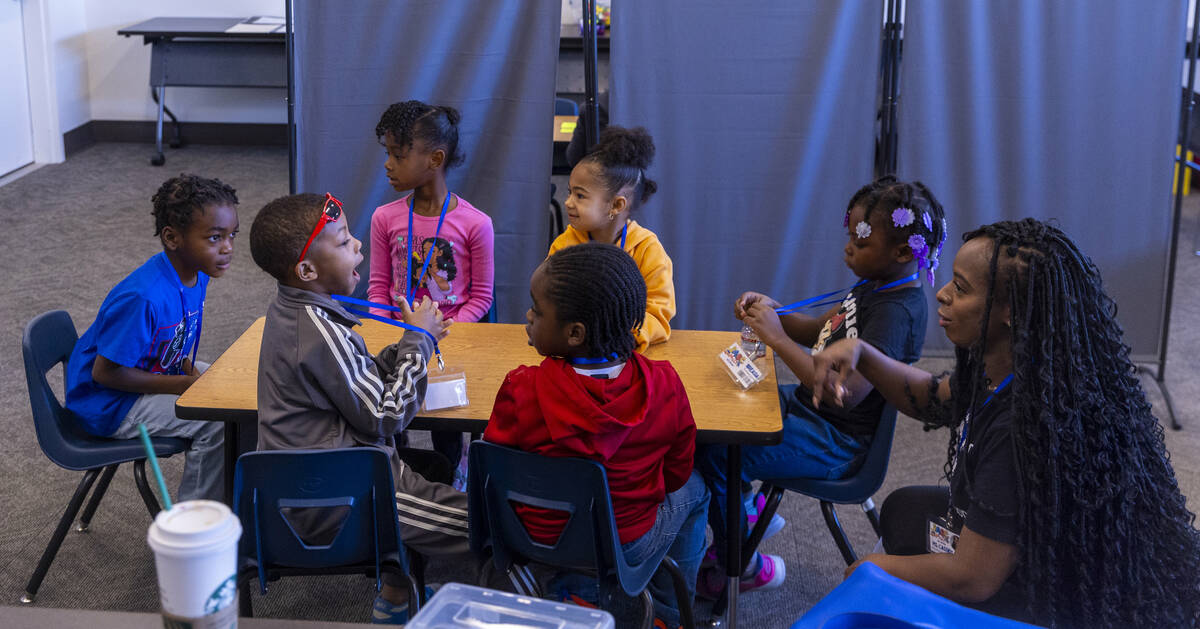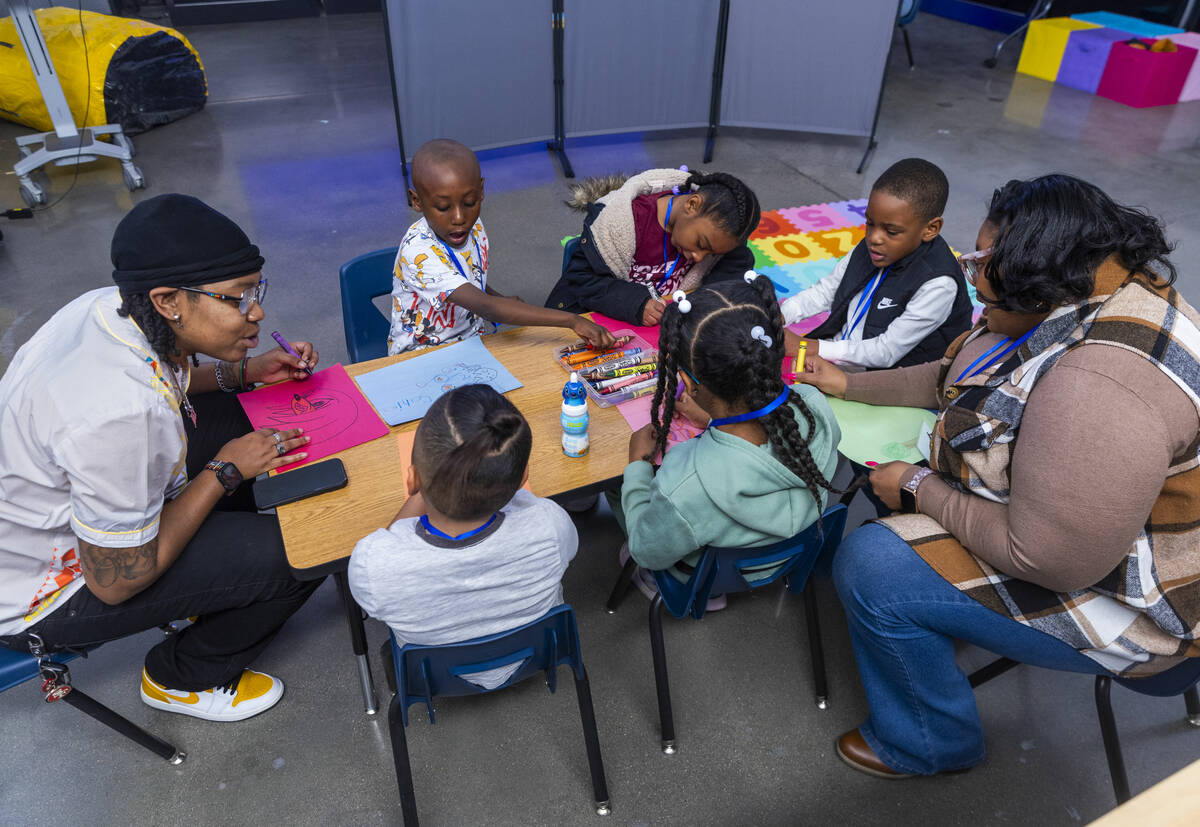‘It’s cool to be a teacher’: Black educators group launches new program
Growing up in the Clark County School District, Jordan Hankins never had a Black teacher.
She was on the verge of dropping out in high school when a counselor “changed the trajectory of her life,” as she puts it. A bachelor’s, master’s and doctorate degree later, Hankins launched the Southern Nevada Black Educators Initiative in 2022 with the hope that students — and their teachers — would be more supported than she was.
“That was a pivotal time in my life, having someone just pull me to the side, and that’s what we wish for our students,” Hankins told the Las Vegas Review-Journal.
On the first Saturday of February, the group launched its new program “ABC to PhD.” The program is free and open to students of all demographics in pre-K through second grade. It offers breakfast, education and outdoor play.
But in order to support students, educators need to feel supported, too. Aside from its new enrichment program, SNBEI recruits and mentors around 200 Black educators in the region. Hankins aims to remind people of what she called the “liberatory” power of being a teacher.
“In the segregated South back in the day, Black teachers were like celebrities in their neighborhoods,” she said. “We’re trying to bring that essence back and bring that here to Clark County to show, ‘Hey, it’s cool to be a teacher and we need you, because representation matters. And you can make so much change in this position.’”
A sense of belonging
In the 2024-2025 school year, 8.8 percent of the licensed teachers in CCSD were Black, according to the district’s data. That’s compared with the 15.9 percent of students who are Black.
Research shows that students of all races do better if they have a Black educator. Black students who have a Black teacher between kindergarten and third grade are 13 percent more likely to graduate from high school and 19 percent more likely to enroll in college, according to a study published in the American Economic Journal: Economic Policy in 2022.
But many Black educators, Hankins said, feel isolated and alone at their schools.
“You don’t have the opportunity to be sad or upset because now you’re (cast as) the ‘angry Black teacher.’ So your mental health suffers because of that. You can’t show up as your true self,” Hankins said. “Just having a community who actually sees you and supports you is something that I’ve heard has done wonders for folks.”
Jay Fair, a coordinator in CCSD’s Equity and Diversity Department and president of SNBEI’s board, said one of the primary reasons teachers leave in the first few years of their career is that they don’t feel a sense of community.
Not only does SNBEI’s mentorship help young teachers, but it also helps mentors as well.
“They accept leadership positions in the district, and they kind of see themselves in ways that they haven’t seen each other yet, they have another sense of responsibility and a sense of purpose in the district,” Hankins said.
Culturally responsive teaching
Hankins said that the reason the counselor, Michael Johansen, was so important in her own life was that he was a “culturally responsive educator.”
“He was very intentional on how he interacted and pushed Black students at Cimarron High School. His office was a safe-haven for a lot of us,” she wrote in a message.
Decuba Porter, an assistant principal in North Las Vegas, said that having educators who understand what the students are going through is critical.
“Because we have had struggles and understand the struggles and the plight that we all run into, we’re better able to manage them and understand behaviors — behaviors that others may think would lead our kids into special education or other things — we know it’s just maybe trauma or some other situation, and we’re able to take that and move them forward in a way that’s not so punitive. We are trying to reduce that school to prison pipeline and just have leaders instead,” Porter said.
ABC to PhD
Parents filed into the space at Nevada Partners Community Learning Center before 8 a.m. and dropped off their children to eat their breakfast of bananas, cereal and juice for the second session on Feb. 8.
“We want her to soak up as much information as she possibly can,” said Jonalyn Venton, who brought her pre-K aged daughter as well as some Clorox wipes to help out. “They’re all accomplished educators, and it’s just so wonderful that they want to do this on a Saturday morning for our kids and at no cost. Hopefully the program will be expanded and more kids will join in the future.”
After the children did their initial assessments on Feb. 1, the second session on Feb. 8 was interactive and full of laughter. As children introduced themselves, drew pictures and placed letters in colorful mats, Fair went around checking in on the individual students.
“I’m really good at making the kids feel safe and calm,” she said.
Zarinah Washington heard about the program on a Black moms of Las Vegas Facebook group and brought her son.
“I just wanted to make sure that he had the best start and fill in any gaps that sometimes the school district can leave,” she said.
It was especially important, she said, that the program is free.
“That means everything. That means access, that means equity, that means a fighting chance for our kids. I wish more kids could experience this and have something like this available more than just once a week,” Washington said.
Contact Katie Futterman at kfutterman@reviewjournal.com. Follow @ktfutts on X and @katiefutterman.bsky.social.



























